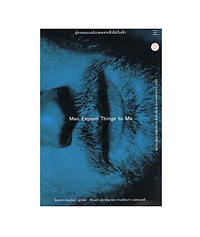You need to sign in or sign up before continuing.
Take a photo of a barcode or cover
informative
sad
fast-paced
This book is a collection of essays previously published by the author Rebecca Solnit. I haven't read them yet, but if you have, this is a warning. I liked the informative writing style and the feminist perspective. I liked that the author's arguments were factual and that she seemed to have a lot of insight into feminism. However, I have a few points of criticism: Solnit's feminism isn't intersectional, it focuses almost exclusively on (white) women in the USA. This was interesting, of course, but not enough for me. Also, some of her essays were a bit repetetive. However, I really liked the essay on Virginia Woolf and now feel encouraged to read more about her.
A harrowing and brilliant insight into the feminism of the 2000s and the early 2010s
I think Solnit summarizes the work of the book succinctly when she says “But I realize now that what I was saying is: it’s a slippery slope. That’s why we need to address that slope, rather than compartmentalizing the varieties of misogyny and dealing with each separately. Doing so has meant fragmenting the picture, seeing the parts, not the whole.”
I think Solnit summarizes the work of the book succinctly when she says “But I realize now that what I was saying is: it’s a slippery slope. That’s why we need to address that slope, rather than compartmentalizing the varieties of misogyny and dealing with each separately. Doing so has meant fragmenting the picture, seeing the parts, not the whole.”
informative
inspiring
reflective
medium-paced
hopeful
informative
reflective
medium-paced
challenging
informative
inspiring
reflective
medium-paced
informative
slow-paced
3.75/5 stars:
I really liked this book and it is obviously very well researched and explained, because although they're not simply emotional essays and they carry a lot of factual information every single chapter is easy to follow and understand.
I think that sometimes the author gives too much emphasis to "I know not all men do this", "Of course it's not everyone who thinks that" or such other expressions even though she herself condemns this acts in certain parts of the book. I of course understand the pressure that a female writer is under when writing a feminist book and that this may just be a natural defense and preventive measure so that no one can blame her of subjectivity and empty accusations.
I liked reading the connections between the feminist movement and the LGBT+ movement especially in the marriage equality essay and it offered me some new perspectives of how one movement can benefit from the other, but I wish we would have had a little more discussion about intersectional feminism.
There was one comment in the book I did not like and I did not agree with, when the author wrote that "violence has no religion, class, race, (...) but it does have a gender". Of course violence has a gender but I do not believe it doesn't have any of those other things. Violence is a power tool and as such it's always used to oppress every minority, so it does have class and race, maybe even religion and more.
I really liked this book and it is obviously very well researched and explained, because although they're not simply emotional essays and they carry a lot of factual information every single chapter is easy to follow and understand.
I think that sometimes the author gives too much emphasis to "I know not all men do this", "Of course it's not everyone who thinks that" or such other expressions even though she herself condemns this acts in certain parts of the book. I of course understand the pressure that a female writer is under when writing a feminist book and that this may just be a natural defense and preventive measure so that no one can blame her of subjectivity and empty accusations.
I liked reading the connections between the feminist movement and the LGBT+ movement especially in the marriage equality essay and it offered me some new perspectives of how one movement can benefit from the other, but I wish we would have had a little more discussion about intersectional feminism.
There was one comment in the book I did not like and I did not agree with, when the author wrote that "violence has no religion, class, race, (...) but it does have a gender". Of course violence has a gender but I do not believe it doesn't have any of those other things. Violence is a power tool and as such it's always used to oppress every minority, so it does have class and race, maybe even religion and more.
Oh it was dreadful! It felt indulgent; like it was sensationalizing stories of DV and SA/Rape just for the shock of it. Firstly, let this be a trigger for you if needed- there are many, very detailed stories of all the varied atrocities faced by woman. The essays are written from a place of extreme privilege and the contents show their age in terms of an severe lack of intersectionality. Glad it was free on Audible and I didn't waste money on it.
It's bad when a book is so small yet I cannot bring myself to finish it.
It's bad when a book is so small yet I cannot bring myself to finish it.
emotional
informative
tense
medium-paced
Moderate: Rape
hopeful
informative
inspiring
reflective
medium-paced




